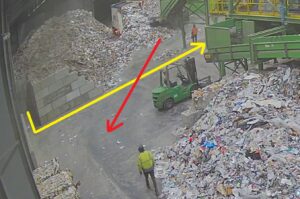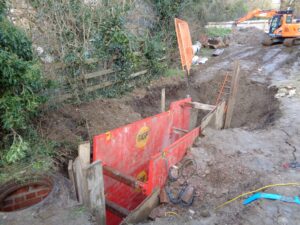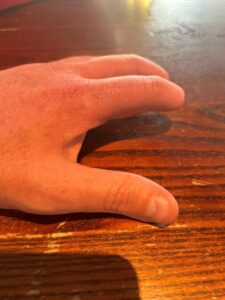Recycling company fined after worker killed by loading shovel

A recycling company has been fined £2.15million after an agency worker was killed by a loading shovel at its site in Hartlepool.
Dean Atkinson lost his life when he was struck and run over by the vehicle at Ward Recycling Limited’s premises on Windermere Road, Longhill Industrial Estate in January 2020.
Health and Safety Executive (HSE) inspector Stephen Garner said Mr Atkinson’s death could have been prevented had Ward Recycling implemented an alternative traffic route for pedestrians at its site on Windermere Road.
Simple measures like providing suitable separation between pedestrians and vehicles are set out in HSE guidance on workplace transport.
Mr Atkinson, 32, had been returning from the site’s welfare cabins to his workstation on the picking line.
To do so, he needed to walk across a traffic area at the site where mobile plant, including two loading shovels, operated.
One of the loading shovels struck and killed Mr Atkinson when he was walking in the traffic area.
Mr Atkinson’s death prompted investigations from HSE and Cleveland Police with Ward Recycling later being prosecuted by the Crown Prosecution Service (CPS). The company was found guilty to committing corporate manslaughter and breaching health and safety regulations after a trial at Middlesbrough Crown Court last month.
The HSE investigation into the incident found Ward Recycling, which went into liquidation in 2021, failed to protect pedestrians from the mobile plant operations it was carrying out at the site. There were no suitable traffic management arrangements in place, meaning pedestrians were at risk of being struck by moving vehicles, including loading shovels. Loading shovels are particularly dangerous if adequate segregation is not in place, in part due to the limitations to the operator’s visibility around the machine – a HSE visibility assessment found that an area over 10 metres in front of the vehicle could be obscured from the driver’s view.
Ward Recycling Limited, formerly of St Peter’s Square, Oxford Street, Manchester, was found guilty of breaching Section 1 of the Corporate Manslaughter and Corporate Homicide Act 2007, Section 2(1) and Section 3(1) of the Health and Safety at Work etc Act 1974. The company was fined £1.75m for corporate manslaughter and £400,000 for breaching health and safety regulations at Middlesbrough Crown Court on 26 January 2024.
HSE inspector Stephen Garner said: “This tragic incident could easily have been avoided if Ward Recycling had implemented simple control measures.
“Following the incident, it took the company less than a week to put in place an alternative traffic route to protect pedestrians.
“Had this been in place before the incident, Dean Atkinson would not have lost his life. Sadly, pedestrians being struck by vehicles on waste sites has caused many fatal accidents on waste sites and the industry should be well aware of the risks.”
Notes to editors:
- The Health and Safety Executive (HSE) is Britain’s national regulator for workplace health and safety. We prevent work-related death, injury and ill health through regulatory actions that range from influencing behaviours across whole industry sectors through to targeted interventions on individual businesses. These activities are supported by globally recognised scientific expertise.
- More information about the legislation referred to in this case is available.
- Further details on the latest HSE news releases is available.
- The yellow line on the attached image shows the route pedestrians took from the welfare cabins to the picking line. The red line shows the loading shovel route.


